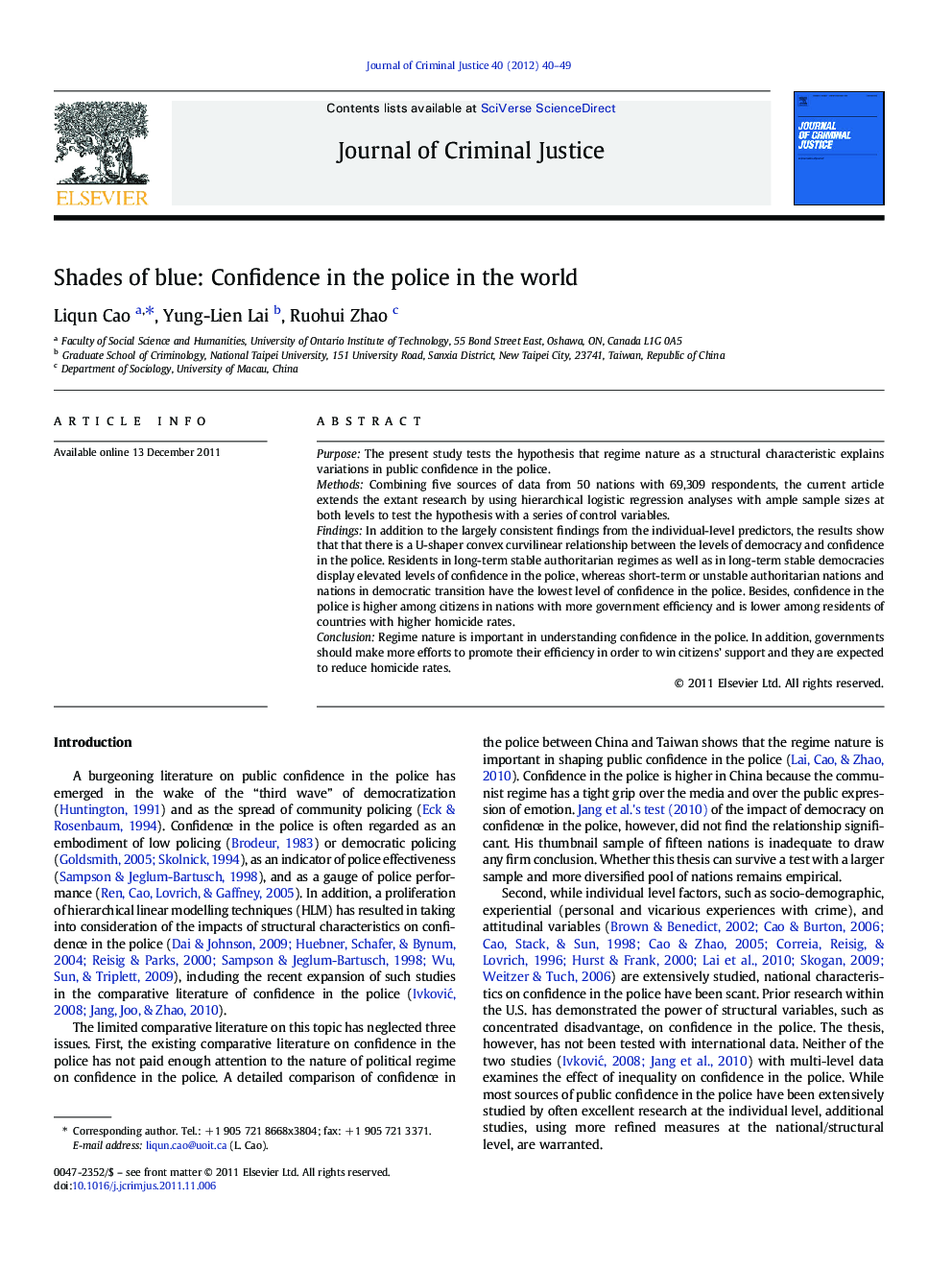| Article ID | Journal | Published Year | Pages | File Type |
|---|---|---|---|---|
| 882847 | Journal of Criminal Justice | 2012 | 10 Pages |
PurposeThe present study tests the hypothesis that regime nature as a structural characteristic explains variations in public confidence in the police.MethodsCombining five sources of data from 50 nations with 69,309 respondents, the current article extends the extant research by using hierarchical logistic regression analyses with ample sample sizes at both levels to test the hypothesis with a series of control variables.FindingsIn addition to the largely consistent findings from the individual-level predictors, the results show that that there is a U-shaper convex curvilinear relationship between the levels of democracy and confidence in the police. Residents in long-term stable authoritarian regimes as well as in long-term stable democracies display elevated levels of confidence in the police, whereas short-term or unstable authoritarian nations and nations in democratic transition have the lowest level of confidence in the police. Besides, confidence in the police is higher among citizens in nations with more government efficiency and is lower among residents of countries with higher homicide rates.ConclusionRegime nature is important in understanding confidence in the police. In addition, governments should make more efforts to promote their efficiency in order to win citizens’ support and they are expected to reduce homicide rates.
► The impact of political regime on the confidence in the police is examined. ► Results show that there is a convex curvilinear relationship between political regime and confidence in the police. ► Stability, regardless of regime nature, promotes confidence in the police while political unrest demotes it.
